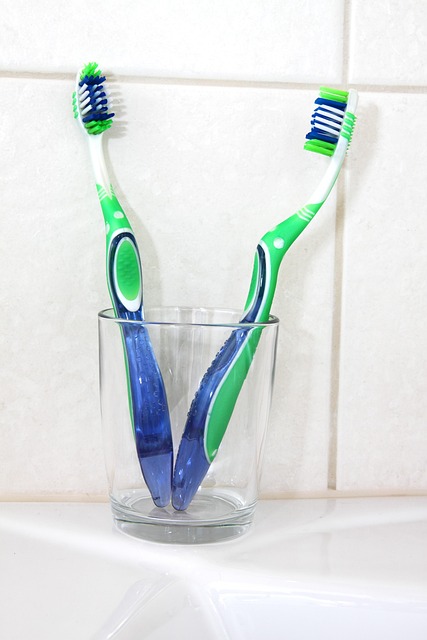The sun's UV rays cause premature aging, acne flare-ups, and skin cancer. Sunscreen with zinc oxide or titanium dioxide protects against UV damage, especially for sensitive skin and during acne treatment facials. It prevents photoaging, aiding in facial procedures like chemical peels. Integrate daily sunscreen application (SPF 30+) into skincare routines, reapplying every 2 hours for outdoor activities.
“Unveil the secret to achieving and maintaining youthful, radiant skin with sunscreen—your ultimate shield against environmental aggressors. The sun, while essential for life, can significantly impact your skin’s health and appearance over time. This article delves into the science behind sunscreen, exploring its critical role in protecting and nurturing your skin. From understanding UV rays’ effects to uncovering key ingredients and its benefits in acne treatment facials, we provide essential insights for a comprehensive skincare routine.”
Understanding the Sun's Impact on Skin
The sun, a vital source of life, also presents a powerful challenge for our skin. Its ultraviolet (UV) rays, often invisible to the naked eye, can cause significant damage over time. These rays penetrate deep into the skin layers, leading to premature aging signs like wrinkles and age spots. Prolonged sun exposure can also trigger acne flare-ups and exacerbate existing skin conditions such as rosacea or eczema. Moreover, it is a major contributor to skin cancer development, making protection from the sun’s harmful effects crucial for maintaining youthful and healthy skin. Regularly incorporating sunscreen into your daily routine is not just about preventing a tan; it’s an essential step in safeguarding your skin and ensuring its long-term health and appearance, even when enjoying acne treatment facials or other skincare procedures.
Essential Ingredients in Sunscreen Formulas
Sunscreen formulas are a complex blend of ingredients designed to protect your skin from the sun’s harmful rays, but what makes them truly effective? Key players in these formulations include physical sunscreens like zinc oxide and titanium dioxide, which act as a barrier on the skin, reflecting UV radiation away. These mineral-based filters are particularly beneficial for sensitive skin, including those undergoing acne treatment or receiving facials, as they’re less likely to cause irritation compared to chemical alternatives.
Additionally, some sunscreen ingredients possess anti-inflammatory properties, helping to soothe and calm the skin. This is especially important for maintaining a youthful appearance as inflammation contributes to premature aging. Beyond protection, certain active ingredients in modern sunscreens offer added benefits such as moisturizing properties, which can be crucial when recovering from acne or undergoing facial treatments that may leave the skin susceptible to dryness.
The Role of Sunscreen in Acne Treatment Facials
Sunscreen plays a pivotal role in acne treatment facials, offering more than just protection from UV rays. It acts as a shield against photoaging, a process accelerated by sun exposure that can exacerbate existing acne scars and prevent new skin cells from regenerating smoothly. By blocking harmful UVA and UVB rays, sunscreen helps maintain the skin’s natural barrier, which is essential for keeping pores clear and minimizing inflammation.
In acne-prone skin, sunscreen isn’t just a morning ritual; it’s a crucial component of any skincare regimen designed to promote clear, healthy skin. When incorporated into facials, sunscreen protects the treated area, allowing professional treatments like chemical peels or microdermabrasion to deeply cleanse and exfoliate without causing further irritation. This dual protection-and-treatment approach is key to achieving and maintaining youthful, radiant skin.
Daily Application Tips for Optimal Protection
To ensure optimal protection from harmful UV rays, making sunscreen a non-negotiable part of your daily skincare routine is crucial. Apply it generously to all exposed skin areas, including your face, neck, ears, and hands. Remember that even on cloudy days, up to 80% of UV radiation can penetrate clouds, so sunscreen is essential year-round. Opt for a broad-spectrum formula with an SPF of at least 30, which protects against both UVA and UVB rays.
When selecting your sunscreen, choose one that suits your skin type, whether you have oily, dry, or sensitive skin. For those concerned about acne treatment and facials, look for non-comedogenic products that won’t clog pores. Regularly reapply every two hours if you’re outdoors or sweating, as water resistance may not fully protect against prolonged sun exposure.
Sunscreen isn’t just a summer essential; it’s a year-round necessity for maintaining youthful, healthy skin. By understanding the sun’s impact and choosing the right sunscreen formula, you can protect your skin from premature aging, hyperpigmentation, and even acne. Incorporating daily application into your routine ensures optimal protection, allowing you to revel in a clear, radiant complexion—and enjoy the outdoors safely. For those seeking tailored solutions, sunscreen plays a vital role in effective acne treatment facials, promoting clearer skin and enhancing overall skin health.
